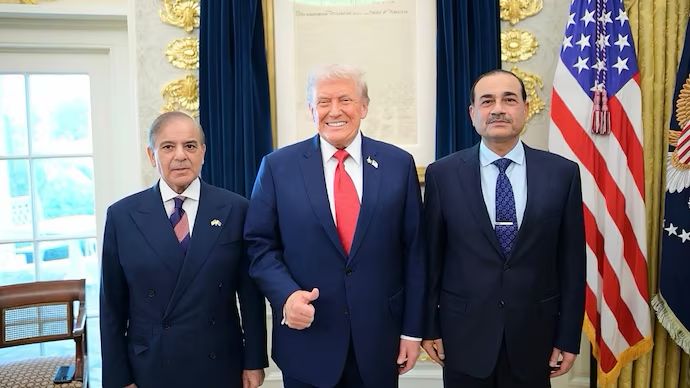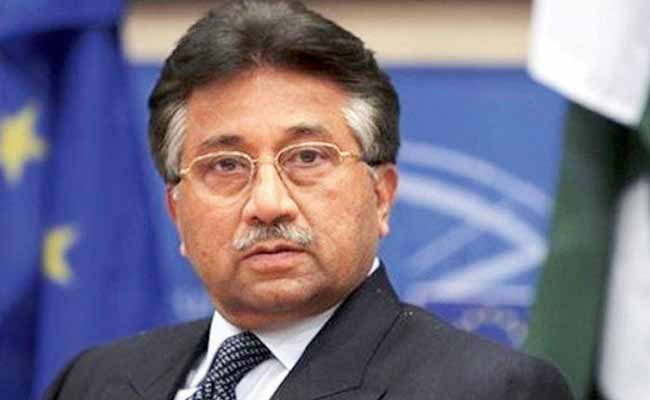Pakistan Set to Receive Advanced Air-to-Air Missiles from US Amid Warming Ties

New Delhi, October 8, 2025: Pakistan is slated to receive AIM-120 Advanced Medium-Range Air-to-Air Missiles (AMRAAM) from the United States, signalling a fresh phase in defence cooperation between Islamabad and Washington. The US Department of War (DoW) announced that Pakistan is included in a recently updated arms contract with Raytheon, which manufactures the missile system. The revised contract added USD 41.6 million to a previously awarded agreement, bringing the total contract value to over USD 2.51 billion. The exact number of missiles Pakistan will receive has not been disclosed. The contract also covers other countries, including the United Kingdom, Germany, Australia, Japan, and Saudi Arabia, with work under the agreement scheduled to conclude by May 2030. The inclusion of Pakistan has generated speculation that the Pakistan Air Force (PAF) may upgrade its F-16 fleet. The AMRAAM missile is compatible with Pakistan’s F-16s, which previously made headlines when an older version was reportedly used in 2019 against an Indian Air Force MiG-21. Pakistan currently operates the AIM-120C5 variant of the missile, acquired with its Block 52 F-16s in 2010. The latest order will provide the export version of the AIM-120D, the most advanced variant of the AMRAAM currently in US service. Analysts suggest the upgrade will significantly enhance the PAF’s air combat capabilities. This development comes amid improving relations between Pakistan and the United States. Last month, former US President Donald Trump hosted Pakistani Prime Minister Shehbaz Sharif and Army chief Field Marshal Asim Munir at the Oval Office. Earlier in June, Munir had also held a rare private meeting with Trump. In July, PAF Chief Air Chief Marshal Zaheer Ahmed Babar visited the US State Department, further reflecting the warming ties between the two countries. The renewed engagement follows the brief India-Pakistan conflict in May 2025. Pakistan credited Trump for facilitating a ceasefire during the clash and even proposed his name for the Nobel Peace Prize, although India rejected this claim, stating that the ceasefire resulted from direct talks between the Directors General of Military Operations (DGMO) of both nations. The US decision to include Pakistan in the AMRAAM programme is being seen as a signal of deepening defence cooperation, potentially aimed at strengthening Islamabad’s air defence capabilities. While the missile deal covers multiple countries, Pakistan’s inclusion has drawn attention due to the strategic significance of the AMRAAM in modern aerial combat. The AIM-120 missile is widely regarded for its precision, range, and effectiveness in air-to-air engagements. Experts note that receiving the advanced C8 variant will allow the PAF to modernise its existing fleet and maintain parity with regional developments. Meanwhile, the broader contract demonstrates the US commitment to supplying advanced defence technology to multiple allies, including Pakistan, while adhering to export regulations and oversight. The DoW confirmed that production under the contract will continue until 2030, and deliveries to all listed countries will be closely monitored. Pakistan’s acquisition is expected to be implemented gradually, with focus on integrating the missiles into operational F-16 squadrons. Observers note that the deal could reshape regional military dynamics and reflects a calculated US approach to strengthening strategic partnerships in South Asia. Pakistan to Receive Advanced Air-to-Air Missiles from US Pakistan will soon get AIM-120 AMRAAM missiles from the United States, marking a new phase in defence ties between the two countries. The deal, part of a larger USD 2.51 billion contract with Raytheon, will help upgrade Pakistan’s F-16 fleet. The exact number of missiles is not disclosed. The move follows recent meetings between US leaders and Pakistani officials, signaling improved relations. Experts say the advanced missiles will strengthen Pakistan’s air combat capabilities. The deal comes amid broader regional security developments and reflects growing military cooperation between Washington and Islamabad in South Asia.




